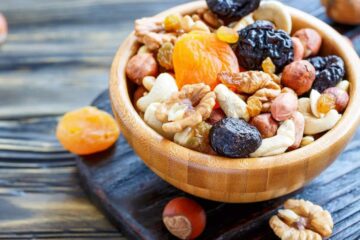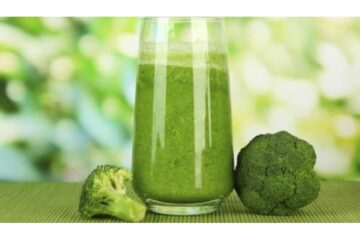What’s more, uh, do you truly need to test the pH of your pee to follow this celeb-adored eating regimen?
Regardless, when famous people acclaim an eating regimen or explicit method of eating, individuals tune in. That is the thing that happened when A-listers like Jennifer Aniston, Victoria Beckham, and Gwyneth Paltrow advanced cookbooks, programs, and even filtered water propelled by the basic eating regimen in the mid 2010s.
What’s more, for reasons unknown, this eating style has genuine resilience. “We’ve seen dozens of diet trends rise and fall, but the alkaline diet remains a topic of conversation for those looking to get healthy, change their body composition, or use it as a hope to cure or delay disease,” says Claire Fudge, BSc RD, a guide to Caliber Fitness.
Yet, what does the eating regimen involve, and are the soluble eating routine advantages genuine? Sustenance professionals say something, ahead.
What is the alkaline diet?
“The alkaline diet is a whole food, primarily vegan, typically gluten-free diet with a primary focus on plant foods,” says Lauren O’Connor, MS, RDN, creator of The Healthy Alkaline Diet Guide.
The eating regimen underlines products of the soil, which are considered “alkaline-forming.” But I’m not catching that’s meaning precisely?
“The alkaline diet originates from the acid-ash hypothesis, which claims that our typical diet causes us to create excess acid, which lowers our blood pH,” clarifies Aja Gyimah, RD, MHSc, a specialist at kuudose. (That would mean our blood is more acidic than it ought to be.)
You may recollect pH from secondary school, Fudge says. It’s deliberate on a scale from 0 to 14. 7 is impartial, under 7 is acidic, or more 7 is a base.
The corrosive debris theory says that overabundance corrosive in our blood must be killed, else, it may cause issues, for example, osteoporosis, malignancy, diabetes, cardiovascular sickness, and the sky is the limit from there, as per Gyimah. So the possibility of the basic eating routine is to forestall long haul medical issues by eating nourishments that don’t create corrosive in the body.
Practically speaking, that doesn’t appear to be so unique from your normal solid eating regimen. “The alkaline diet promotes eating fruits and vegetables and limiting saturated fats, trans fats, refined sugars, and high intakes of red meat,” O’Connor says.
The distinction, however, is that the eating regimen puts together its rules with respect to the kind of buildup abandoned when the body utilizes a given food: either corrosive or antacid.
Nourishments considered corrosive shaping include: hamburger, pork, poultry, dairy, profoundly handled nourishments, and liquor
Nourishments considered antacid shaping include: organic products, vegetables, nuts, and vegetables
Nourishments that are viewed as impartial include: normal fats, starches, and sugars
Following the eating regimen is straightforward: Eat basic and impartial nourishments, and maintain a strategic distance from corrosive shaping nourishments. Individuals will regularly test their pee or spit utilizing pH strips to check on the off chance that they are in an “alkaline” state.
Alkaline diet drawbacks: The downsides
Along these lines, there are a couple of enormous issues with the soluble eating regimen. Above all…
Science doesn’t bolster it.
In spite of the fact that limiting handled nourishments and eating more plants is definitely not a terrible thing, the thinking behind the basic eating regimen’s food classes doesn’t hold up.
“To date, there is no scientific research that has shown an alkaline diet to alter the body’s pH,” says Maya Feller, MS, RD, CDN of Brooklyn-based Maya Feller Nutrition. “The alkaline diet has been shown to have some impact on the pH of urine, but not the blood.” That’s on the grounds that the kidneys, lungs, stomach related framework, and liver guarantee a solid individual keeps up a blood pH of 7.35 to 7.45, Feller says. “Deviations outside of that narrow pH range can be fatal, but are very rare unless the body is seriously compromised with a medical or congenital condition.”
At the end of the day — the nourishments we eat don’t affect blood pH in a significant manner, so regardless of whether your pee is trying “alkaline,” it doesn’t mean you’re getting medical advantages from the eating routine.
It’s excessively prohibitive.
When all is said in done, sustenance aces are not huge fanatics of diets that cut out whole nutrition types without the nearness of a food prejudice or affectability. A one-size-fits-all methodology, similar to the soluble eating routine, is probably not going to be fruitful long haul. “This diet is quite restrictive with regard to the consumption of meat, dairy, and whole grains,” Feller calls attention to. In spite of the fact that it’s certainly conceivable to have a smart dieting design that bars those nourishments, the eating routine’s imperfect theory is certifiably not a valid justification to nix them.
It requires cautious arranging.
Since numerous protein sources are barred from the basic eating routine, after this eating example and meeting your protein needs can be dubious. You’ll have to think about elective hotspots for complete proteins, or fundamental amino acids, Feller says. “Essential amino acids are the building blocks of protein that cannot be synthesized in the body, and play a number of critical roles in the body.”
Specific antacid items are expensive.
“Supplement companies have popped up promoting products and foods that claim to have alkalinization capabilities,” Gyimah points out. “However, considering there’s little research to support the acid-ash hypothesis, consuming these products likely won’t provide the benefits consumers are looking for, and may be quite expensive.”
Alkaline Diet benefits: The upsides
It stresses entire nourishments.
Because of the absence of proof for the soluble eating routine, Gyimah wouldn’t prescribe it to her customers. “However, the alkaline diet encourages people to eat plenty of fruits, vegetables, and legumes and to consume less processed foods and alcohol, which aligns pretty well with healthy eating guidelines,” she says. “A diet high in fruits, vegetables, and legumes is beneficial to our health even though it may not affect our pH.”
It might help with some medical problems — however not due to pH.
“Research continues to be quite clear that plant-based diets have a positive effect on blood pressure, bone health, and acid reflux management due to their nutrient content — not their pH,” O’Connor says. “For example, there is significant, substantial scientific evidence that potassium (a mineral highly present in many of your fruits and vegetables) has a role in both sodium-balance and vasodilation — thus ideal for blood pressure control.”
It may help with weight reduction.
Another symptom of concentrating on products of the soil and dispensing with prepared nourishments: “It would certainly decrease the likelihood of overconsuming calories, and it would be likely to increase the intake of essential micronutrients and fiber,” Fudge says. While lessening calorie admission is required for weight reduction, the expansion of fiber, which is exceptionally satisfying, can likewise help.
The Bottom Line
“Diets such as the alkaline diet make healthy eating harder than it needs to be,” Gyimah says. “I’m a big fan of easy, healthy eating and you can do this by eating more plants and whole grains.” as it were: Eating well doesn’t need to be this confused — or require testing your pee.


